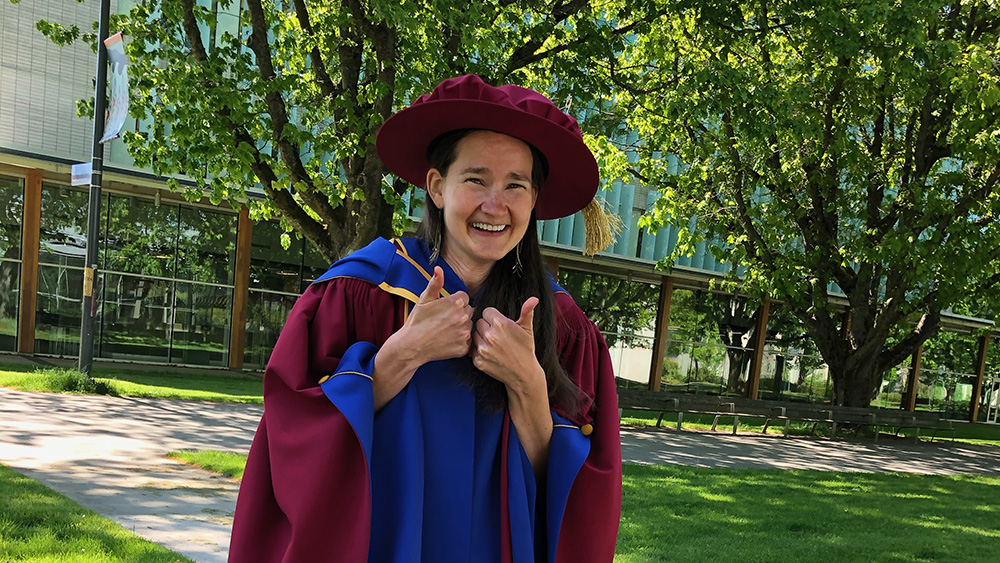
Laura Yvonne Bulk, MOT’14, PhD’21, has received many accolades for her research, teaching and advocacy to improve the lives of people with disabilities, but the Tom Henrik Walter Occupational Therapy Award still holds a special place in her heart.
“When I was a Master’s student in occupational therapy, the Walters were my connection to the supportive community of people out there who thought what I was doing was important enough to invest in. It was really encouraging,” says Bulk who grew up on the traditional territory of the WSÁNEĆ peoples of the Coast Salish Nation. “And I was able to say to them: What you’re doing in your son’s memory, it matters.”
Heddi and Tony Walter established this award at UBC in honour of their late son Tom Walter, BSc’88 to ensure his passion for occupational therapy lives on.
Bulk believes her work with research-based theatre that shares the experiences of Disabled people in the health professions would interest Tom and his parents.
“I think theatre is a powerful tool for shifting attitudes and impacting affective change,” says Bulk, whose doctoral work focuses on belonging and how people with disabilities, including mental health conditions, chronic health conditions, physical disabilities and other kinds of disabilities, develop a sense of belonging in higher education and academia.
“I know I belong when…. This is a sentence I’ve asked hundreds of people to complete. I invite you to think about how you would complete that sentence.”
Laura Bulk, PhD
She also invites everyone to listen to the research-based audio theatre she co-created based on Blind peoples’ responses.
Bulk became an occupational therapist because she wanted to come along side people in their journey to gaining the skills and confidence they need to live the lives they desire. But sometimes societal and institutional barriers were in the way of their goals.
A PhD was Bulk’s opportunity to help create change at societal and institutional levels through policy change. But as she learned and worked in this space, she found out policy change, while important, might not be the most important change.
“If people’s hearts don’t change—if we don’t embrace difference and include disability as part of human diversity—we will never be able to create places where all of us can belong,” says Bulk.
As part of her doctoral work, she co-created a model of how belonging develops in higher education, from affiliation to familiarity, acceptance and interdependent relationships to mutual trust and equity. Her dissertation includes audio files of the chapters read aloud for accessibility.
“This model of belonging emphasizes being able to be my full self, including my blind self,” says Bulk. “When we can bring our full selves to the table—including disability, racialized status, and so-on—that is a place where we can belong.”